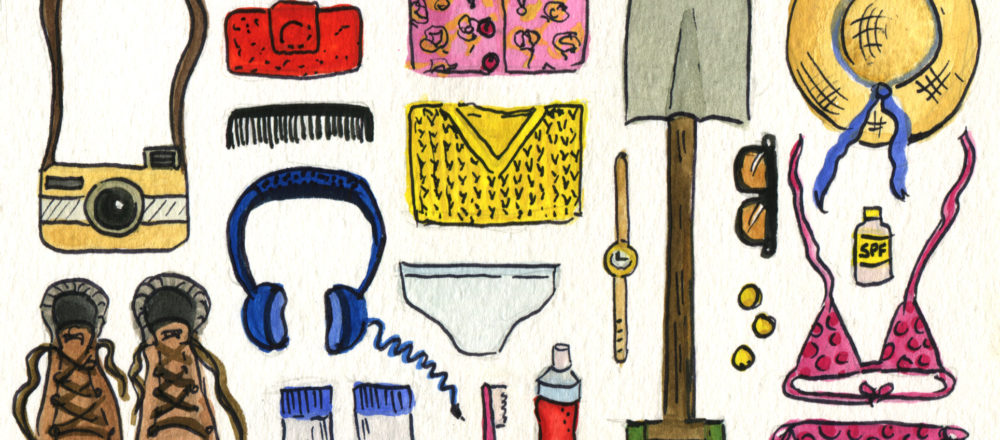Volunteering is considered a noble act in our community. Dedicating your time to something for free is seen as the essence of altruism and the path to living an ethical, selfless life.
Voluntourism – an industry worth $2.6 billion worldwide, according to a major voluntourism study, which also found over 1.6 million people had volunteered overseas in 2008 – is perhaps the most polarising form of volunteering there is. It is often deemed a way for travellers to make their experiences more meaningful and “authentic” as they travel abroad, with youth travel agencies now offering volunteering projects instead of Contiki tours, packaging it as a new way to experience the world.
It’s a fantastic idea in principle but something about it doesn’t quite stack up. Does voluntourism actually do more harm than good?
—
In January 2016, I joined a team of teachers travelling to Cambodia with Teachers Across Borders (TAB) to run professional development workshops with pre-service teachers. We were volunteering our time to improve their skills and capacity to teach.
Most of the classrooms had no doors, a large blackboard and dusty, dirty floors. If you were lucky, a single fan was used to circulate the hot and humid air. The large science labs were impressive, except they lacked the proper equipment to run lab projects, and mostly used the lab benches as desks.
In the 1970s, the Khmer Rouge regime decimated the education system in Cambodia. Millions of people were killed, including the majority of educated people – teachers, professors and scholars. Schools were destroyed and books were burned. Since the 1980s the Cambodian government and international development agencies have been trying to rebuild the education system from the ground up.
However, the education system grossly underpays its teachers, even by Cambodian standards. According to official statistics, in 2011 there were 88,133 public school teachers in Cambodia receiving wages in the range of just $50USD to $100USD per month. More than 90 per cent of teachers work second jobs to support their families. Even with a wage increase in 2015, teachers are still unsustainably underpaid compared with rising living costs. To compound this, many teachers receive little formal training or ongoing professional support.
Australian teachers had a lot to offer Cambodian teachers; we had specialised knowledge they may never have accessed otherwise.
I still wondered though, Were we just another group of voluntourists?
—
Volunteering is an important pillar of any society. The goodwill of people in the world helps change to gain momentum and take form. In Australia, volunteers deliver many critical community services: from firefighters and search and rescue operations, to those that deliver meals to homebound seniors or homeless youth, or the hardworking volunteers manning phone lines late into the night at domestic violence and sexual assault centres.
But while volunteering may be an important pillar, it should never replace well-paid work, only supplement it. When it comes to measuring what impact a volunteering organisation is really making, it’s important to look at what they provide and how they provide it.
Backlash against voluntourism from the New York Times and The Guardian has lamented well-meaning Westerners who fly into a developing country to “fix it”, then fly out not long after.
In one such article, journalist Courtney Martin presents an interesting thought experiment. Imagine a young Ugandan student reading about the mass shootings in the US. Now imagine she’s thinking she can go there and, using the power of her goodwill, solve the problem by getting gun legislation passed.
“You could start the nonprofit organisation that ends mass shootings, maybe even win a humanitarian award by the time you are 30,” she writes. Martin then compares the absurdity of this story with the thousands of young self-proclaimed aid workers who travel abroad for voluntourism each year.
Voluntourism is a complex problem. At first glance you’ve got well-meaning people who truly want to do what they can – which can only be a good thing. This tends to come with a dangerous naivety about voluntourism’s impact that has the potential to do more damage than good. As the saying goes, the road to hell is paved with good intentions. This is potentially the most complex and difficult point to address in voluntourism.
You’ve also got a huge amount of money being spent on what is often mistakenly considered an authentic experience that might be better spent by giving the funds to a well-established non-profit with better networks and a history of impact with disadvantaged communities.
—
As part of Teachers Across Borders, we gave the student teachers small resource packs: folders filled with pencil cases, pens, pencils, chalk, scissors and exercise books. They were so grateful; some of the pre-service teachers told us that rarely did schools provide such materials for staff.
The pre-service teachers were intelligent and ambitious, they said they wanted to become teachers so they could make Cambodia strong again.
I really wanted to share my knowledge of highly developed, world-standard strategies to these Cambodian students, so they could have the best chance to educate and change their society.
It’s this transfer of specialist knowledge that makes a program like TAB productive and meaningful. One-to-one becomes one-to-many – through education, you can have a very broad impact on a whole society, and impact a much wider community.
Voluntourism has its problems, but this shouldn’t discourage people from contributing their skills and knowledge to help those who will go on to help themselves and others in their community.
Good international development should focus on providing new skills through capacity-building projects so that communities can create their own change, rather than providing a nice dinner party story for a wealthy Westerner.



